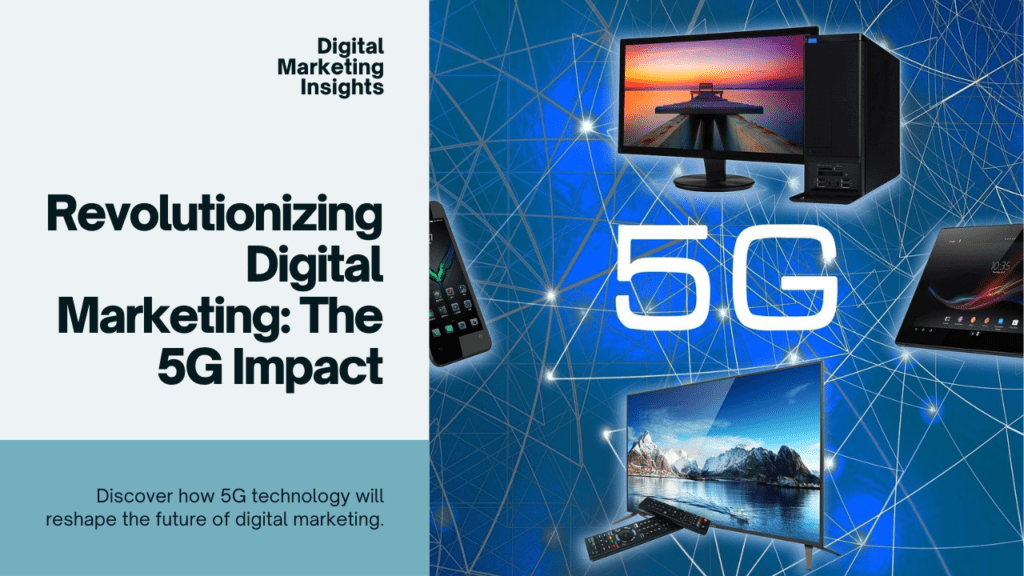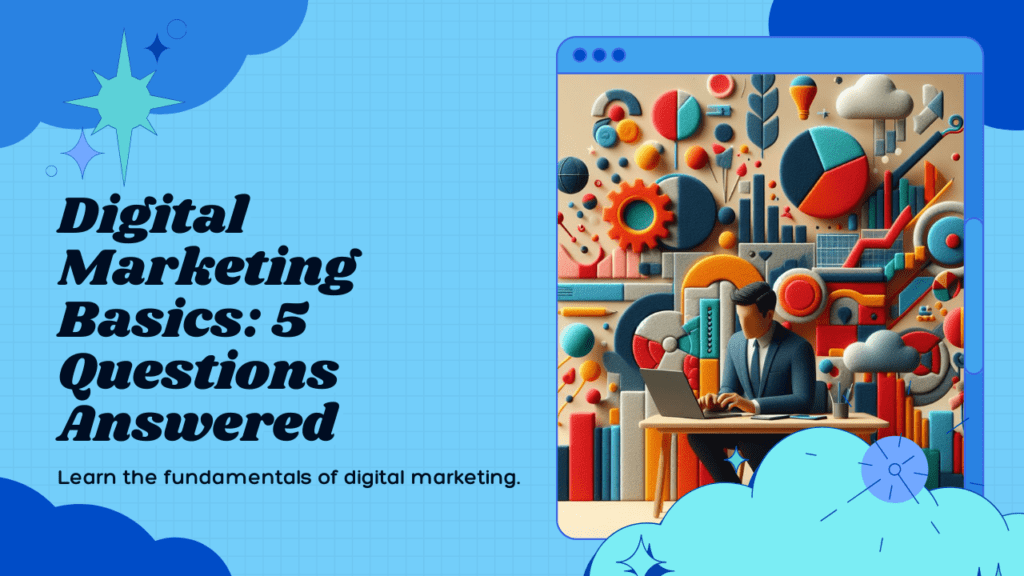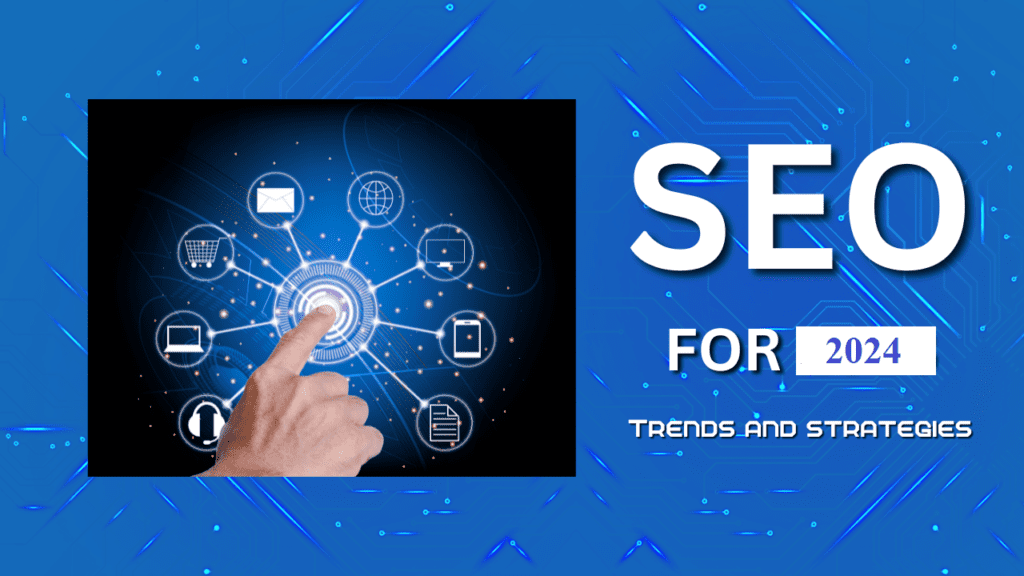In an era defined by technological leaps, 5G technology stands as a milestone. Impact of 5G technology extend far beyond faster downloads and seamless streaming; it’s poised to reshape the digital marketing landscape. As we check out the sphere of this technology, it’s essential to understand both its potential and its limitations.
Overview of 5G Technology
To comprehend the transformative power of 5G, let’s first dissect its core. Unlike its predecessors, this isn’t just an incremental upgrade. It’s a paradigm shift, marking the fifth generation of cellular wireless networks. With speeds up to 20Gbps, it dwarfs the capabilities of 4G, unlocking new horizons for connectivity and data transfer.
Impact of 5G technology on Digital Marketing
Enhanced Personalisation Opportunities
Imagine crafting marketing messages tailored precisely to individual preferences. With 5G, this isn’t a distant vision but an imminent reality. Higher speeds and seamless connectivity mean marketers can harness a wealth of real-time data, paving the way for hyper-personalised advertising. This shift will not only deepen consumer engagement but also drive conversion rates to unprecedented levels.
The Ascendance of Video Marketing
Video content is gaining traction, but 5G will propel it into a new dimension. With negligible lag times, buffering will be a relic of the past. 5G technology is anticipated to offer speeds up to 100 times faster than those of 4G.[1] With the arrival of this technology, a chance arises to produce more immersive content through 3D video and metaverse content. As per a Demand Sage report, it is projected that online video will make up 82.5% of total web traffic in 2023.[2] This statistic alone underscores the significance of this transformation for digital marketers.
Interactive and Immersive Experiences
5G isn’t just about speed. It’s about interactivity. Interactive ads, once constrained by technological limitations, will now become everyday things. Marketers can check out augmented reality (AR) and virtual reality (VR) experiences with unparalleled fluidity. Imagine consumers exploring products through AR applications or engaging in immersive brand experiences, all powered by this technology.

Challenges and Limitations of 5G
However, it’s not all smooth sailing. The rollout of 5G faces its share of challenges. Infrastructure development, particularly in more remote areas, presents a significant hurdle. Also, concerns about privacy and cybersecurity must be addressed. Ensuring a seamless transition to this technology while maintaining robust security measures will be paramount.
Case Studies: Pioneering the 5G Frontier
Tech giants like Samsung and Huawei have already recognised the potential of the impact of 5G technology. By incorporating this support into their flagship smartphones, they’ve signalled a fundamental change in consumer connectivity. Early adopters of this technology are assured of gaining a competitive edge, setting a precedent for other businesses to follow suit.
Future of 5G in Digital Marketing
The future is no doubt bright for 5G in digital marketing. As the technology advances, we can anticipate a surge in inventive applications. From AI-driven experiences to seamless IoT integration, the possibilities are boundless. The age of mass connectivity and instant access is upon us, and marketers who utilise the full potential of this technology will thrive in this new landscape.
To sum up, 5G technology stands on the brink of transforming digital marketing. It will leave a mark on various sectors, introducing an era of unparalleled connectivity and interaction. While challenges exist, the potential rewards far outweigh them. As companies navigate this new landscape, those who adopt 5G will lead the way in the digital revolution.
Note:
[1] Krishan Arora, “A New Era: The Impact Of 5G On Digital Marketing“, July 28, 2023, Forbes
[2] Daniel Ruby, “84 Video Marketing Statistics In 2023 (Data & Infographics)“, July 17, 2023, DemandSage
FAQs:
What is 5G, and how will it impact digital marketing?
5G technology will lead to faster internet connections, which will result in an increase in the number of internet users. This will create new opportunities for digital marketers to personalise their content and reach out to more consumers.
2. How will 5G transform the consumer experience?
5G technology is expected to revolutionise the consumer experience by enabling ultra-high-definition content streaming without buffering, creating opportunities for richer, high-quality content that loads instantly and is compelling enough to retain attention in an environment where speed is no longer a differentiating factor.
3. What are the benefits of 5G for digital marketers?
5G technology will provide digital marketers with faster data processing and better data management capabilities. This will help them to produce more personalised and engaging content which resonates with their target audience.
4. What sets 5G technology apart from its predecessors?
Unlike its predecessors, 5G represents a paradigm shift, marking the fifth generation of cellular wireless networks. It boasts speeds up to 20Gbps, significantly outpacing the capabilities of 4G.
5. How does 5G technology enhance personalisation in digital marketing?
With 5G, marketers can craft tailored marketing messages precisely aligned with individual preferences. The higher speeds and seamless connectivity enable the harnessing of real-time data for hyper-personalised advertising, deepening consumer engagement and driving conversion rates to unprecedented levels.
6. What is the anticipated impact of 5G technology on video marketing?
5G is set to revolutionise video marketing by virtually eliminating lag times and buffering. Expected to offer speeds up to 100 times quicker than 4G, it enables the creation of more immersive content through 3D video and metaverse experiences. Additionally, projections suggest that online video will constitute a significant portion of total web traffic.
7. How will 5G transform interactive and immersive brand experiences?
5 G’s impact extends beyond speed; it revolutionises interactivity. Interactive ads, once constrained, become everyday occurrences. Marketers can seamlessly implement augmented reality (AR) and virtual reality (VR) experiences, allowing consumers to explore products or engage in immersive brand experiences with unparalleled fluidity.
8. What challenges does the rollout of 5G face, and how will they be addressed?
While the rollout of 5G presents tremendous opportunities, challenges persist. Notably, infrastructure development, especially in remote areas, poses a significant hurdle. Additionally, concerns regarding privacy and cybersecurity must be addressed to ensure a seamless transition to this technology while maintaining robust security measures.



